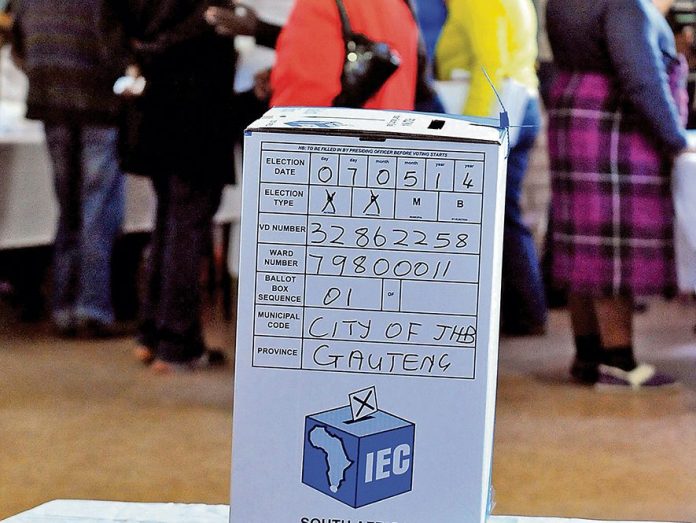Johannesburg – It is not obvious that we should postpone local government elections until next year.
There are serious democratic and constitutional issues at stake.
Surprisingly, despite the democratic stakes being very high, there is very little public debate on this issue.
It may be useful to outline why the issue is far more important than the relative silence in the public sphere would have one believe.
The Electoral Commission of South Africa (IEC) has applied to the Constitutional Court, on an urgent basis, to have the recommendation for a postponement of the elections confirmed.
This follows the wholesale acceptance by the IEC of a report by former Constitutional Court judge Dikgang Moseneke that argued it is not possible, in these pandemic-constrained times, to guarantee free and fair elections this year. Instead, the report argues, we should aim at holding the elections early next year but no later than end of February.
On the face of it, the recommendation doesn’t seem egregious.
After all, public health matters. And, besides the importance of not creating super-spreader events, if political parties cannot campaign as usual, and if the IEC is hamstrung administratively because of the practical eff ect Covid-19 had and still has on our lives, then a postponement of elections seem rational.
But the issue, I’m afraid, isn’t quite so straightforward. Freedom Under Law (FUL) has applied to be a friend of the court.
They want to make a few points that are important to engage with. They claim that the Constitutional Court does not have the jurisdiction to enter this debate at all.
Section 159(2) would need to be amended by parliament, with a 75% majority, in order to give effect to the wishes of the IEC. At any rate, this section of the constitution also strictly defines “regular” elections as no more than a five-year period between elections, and so there is no hermeneutical space for alternative textual analysis.
I don’t know whether the court will find this line of argument cogent. But it is an argument that is important, coherent and demanding a proper response.
Politically, one might add, it is madness that parliament has not debated the issue.
The instinctive deference to the Constitutional Court is indicative of how addicted we are to enmesh politics with legal adjudication.
That is sometimes necessary, given our commitment to constitutional supremacy, but this elections debate needed to, and still needs to be fully debated.
The reality is that no one knows whether and when we have another wave of Covid-19 infections.
If it happens early next year, will we again postpone? The IEC ought to have done better.
It should have developed an entirely new set of policies and protocols, consistent with electoral law, on how to hold elections successfully during a pandemic.
This pandemic could be a near permanent feature. Then what?
In the end, avoidable practical considerations may overtake the kind of arguments FUL, and others, will bring to the table.
Many voters need to be registered still.
Otherwise we are stripping citizens of fundamental political rights. Political parties need time to draw up candidate lists, and the IEC itself needs time to operationalise an election. So the important constitutional arguments, grounded in democratic theory, for not postponing elections, may clash with feasibility considerations.
But the very first question the court will have to settle is whether it has the authority to decide the matter.
Last, we shouldn’t be glib about the implications of extending the term of councillors who underperform. Places like my hometown, Makhanda, cannot survive another month with a useless bunch in charge. A postponement also has dire consequences for service delivery.
That’s another reason this topic should be opened up for public debate and parliamentary scrutiny.
Just because we have enormous respect for Moseneke doesn’t mean his recommendations cannot be critically engaged. The right to vote lurks in the background.
That’s no small matter.

Click here to read more political analysis from this week’s newspaper.
Also read:
Mamkhize has bought Bloemfontein Celtic
Cyril Ramaphosa: “Outsourcing weakens the state”
Follow @SundayWorldZA on Twitter and @sundayworldza on Instagram, or like our Facebook Page, Sunday World, by clicking here for the latest breaking news in South Africa. To Subscribe to Sunday World, click here.
Sunday World



